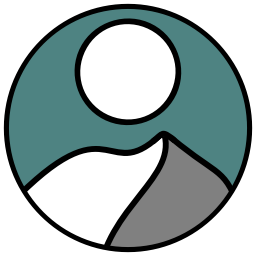Canberra Business News recently wrote about Aristotle Metadata for their series on Entrepenurs. Check out a preview below or read the full version online.
Aristotle Metadata started out as a software project a number of years ago. At the time, founder Sam Spencer had been working on metadata modelling and practical registry design for the Australian Bureau of Statistics and the Australian Institute of Health and Welfare. His work in the public service allowed Sam to see the potential of how metadata could be used to help improve services.
“I was working with a Department that had a piece of software that was helping them describe the data they were collecting. It was really around helping other departments and private citizens understand what data was being collected by government and how it was being used.
“The project was looking at hospital reporting. It focused on how long it was taking people to get seen when they go to an emergency room and what could be measured to help reduce waiting times. The idea was that if we can measure the performance of a hospital, we can track how to make it better.
“That idea really meshed with me. I’ve always had a bit of a ‘mathy’ background and understanding how data could be used in that way to improve the health of basically everybody was really appealing”.
While Sam was working on the project, he saw that other government departments, not just in Australia, but internationally, really loved this idea.
“They were saying that they wanted a platform that would be able to track things like hospitals across Europe; education outcomes; and financial literacy for migrants.
“It was all about data, not just about getting the data, but also understanding and telling people what it means. When we measure how long it takes somebody to get seen at a hospital, we need to know what hospital and when do we start counting? Is it the moment they walk through the doors?”
What is metadata?
Metadata describes the structure of data. Not only does it define the fields and format of data, but it can tell us why, how and what data was collected. And by having a detailed definition of the structure, it can help us to better understand the data by highlighting similarities between data collections.
Sam could see the need for a world-class metadata registry, so he began drafting plans for what an open-source metadata registry could look like.
Sam reached out to others who shared similar interests. Speaking to people from statistical and data-oriented agencies around the world, many of these organisations had built bespoke systems to tackle common problems. Sam noticed that nearly all of the organisations with bespoke systems had settled on the ISO/IEC 11179 metadata registry standard for their base. So, after extensive consultation, the first version of the Aristotle Metadata Registry was launched at IASSIST 2015. A community of quality assurers and developers that continue to work on the system has grown. There is also a growing community of users that are helping to build an interconnected metadata system.
Communicating the potential
While the data community understood the importance of what they were doing, Aristotle Metadata needed to bridge the communications and training gap to show other people the potential. So, co-founder Lauren Eickhorst, who has a communications background, joined the team and started putting together tenders.
About three years ago the company landed a couple of big government clients. “We’re now working with the Department of Education and we have just helped with the Workplace Gender Equality Agency. We are basically the platform that they are using to describe all the gender equality indicators for Australia”.
It addresses key measures such as
- How will you measure key management personnel?
- How do you measure participation on boards?
- What is remuneration?
“Getting that recorded is important so that when people are interpreting the data or reporting on the data, they understand what it means,” says Sam.
International collaboration
Sam says that they are currently undertaking a pilot project with the Swiss Bureau of Statistics as well as collaborating with other academic and government agencies internationally.
“We did a pilot project with the Health Department of Ireland who are looking at expanding it to a couple hundred users across Ireland”.
Sam says an international focus has always been the goal, but he believes it’s important to play to your strengths.
“We started in Australia because we know the market here and at the moment, we are focusing on what’s local and what we know we can really service well. But nowadays everybody has a web presence so everybody’s global, especially in software. I do think the strategy for next year will be more focused on that export market”.
Impact of COVID-19
Lauren says that while 2020 has been stressful, as a business they have been largely okay because they work a lot with government clients. Not seeing as many new clients this year has also provided the opportunity to focus more internally and improve marketing and advertising messages.
Sam says the change in operating environment and having to adjust to working from home was quite a challenge.
“We weren’t as prepared for it as we could have been”.
Sam says the other challenge was the inability to get out and talk to people. “There has been some pros and some cons. A big part of business-to-business sales is those interpersonal connections. Like having a good hearty handshake and having a sit down over coffee. These have always been what’s required to get deals signed. However, government has been really responsive to online meetings and everybody Teams and Zooms. The shift to allow for online meetings has been really good to reach organisations, but missing that personal connection has been challenging even for a software company”.
Sam believes that the pandemic has also driven a lot of digital transformational change that has been a long time coming.
“We’re a young company and we focused really heavily on the Cloud because it means that we can build product and push it out really easily. There has been a big shift from last year where a lot of our government agencies insisted that our product had to be inside their building and we had to physically install it. This year all of a sudden all their workforce had to work from the couch and couldn’t access the building. This meant they couldn’t access software, so it has really changed what people are open to”.
Looking forward
Aristotle Metadata has just signed a multi-year agreement with Potential(x), one of the premier health analytics and advisory firms in Australia and New Zealand. Potential(x) provides deep benchmarking analysis, reports and advisory support on performance to the health & human service sectors internationally, working with hospitals and disability organisations to track and measure performance improvement and change.
Sam says it’s been a really interesting shift for the organisation because it is a shift to the private sector.
“We’ve mostly been focused on the government sector because that’s where our strengths were, so reaching into the private sector is great,” says Sam.
Read the original version at: https://www.canberrabusinessnews.com.au/who/the-entrepreneurs/745-canberra-start-up-making-meaning-from-data.html.

Discuss this post on our community forum: https://community.aristotlemetadata.com/

